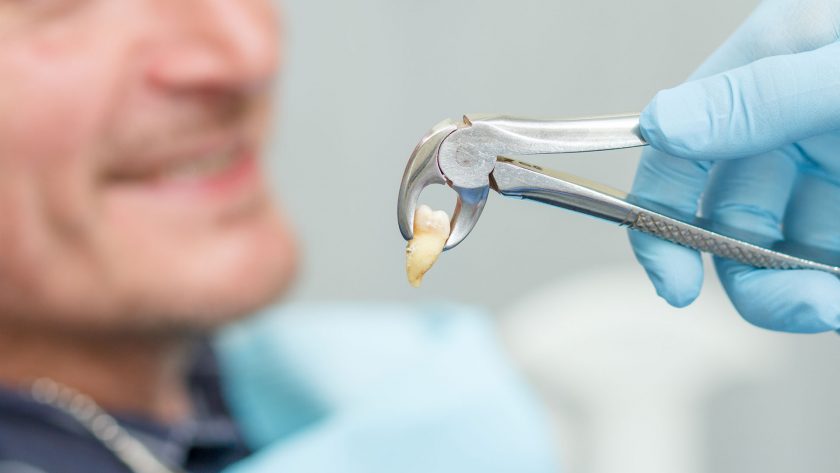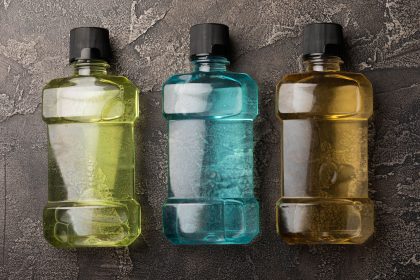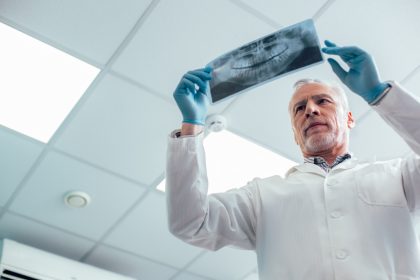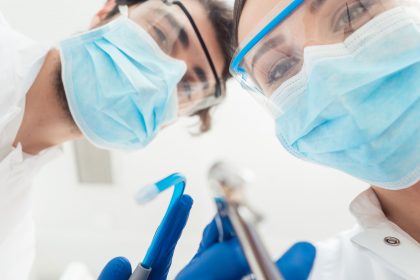When the pain is excruciating enough, people will do almost anything to make it stop—as we all know from watching television. They’ll reveal the location of the hidden treasure. They’ll confess to a crime they didn’t commit. They’ll even take a pair of pliers to their own teeth.
In those first two cases, sure, you might get a reprieve. But pulling your own teeth is unlikely to solve your problem, and there’s a good chance you’ll make things worse.
Adult teeth should only be removed by a qualified dentist. Pulling your own tooth puts you at risk for infection and damage to your jaw and adjacent teeth. Additionally, extraction is not always necessary. Your dentist might be able to treat and save the tooth or even discover that the tooth is healthy and your pain is caused by an unrelated problem.
There are plenty of reasons your tooth might be hurting, and the pain can be unbearable. But that’s all the more reason to be brave and see a dentist instead of trying to DIY the job.
What can go wrong when you pull your own teeth?
Without proper training and without the right instruments, there’s a good chance this will end badly.
Also, consider this: your dentist will be able to numb you up before treatment, so you won’t feel any pain while it’s happening. You won’t have that luxury when you do it yourself, so you’ll be feeling every single tug and twist and crack.
You might break the tooth
And speaking of crack, your tooth is securely embedded in the jaw bone. Unless it’s already wobbly from advanced periodontal disease, you’re going to have to use some force to muscle it out. And there’s a good chance that whatever tool you’ve selected from the box in your garage is going to do some damage. You could crack the tooth or split it or crush it before you’re able to remove it—especially if the tooth structure has been weakened by cavities or other trauma. You thought the tooth hurt before? Imagine how it’s feeling now as you try to track down a dentist to clear out the shattered fragments still buried deep within your jaw.
You might damage adjacent structures
You’re worried about a single tooth. But the violence involved with wrenching it out of your mouth has the potential to do significant damage to the teeth next to it, and also to your gums and even your jaw bone. Dentists spend years learning the procedures and protocols for safely working inside your mouth. They know how to deliver treatment that poses minimal risk, with minimal pain, and they know how to respond to all potential complications that might arise. You, on the other hand, spent half an hour browsing for forceps at Home Depot.
There’s a good chance of infection
Even if you manage to successfully pull your own tooth, now you’ve got another problem. Now you’ve got a bloody wound swarming with bacteria from your mouth, your hands, and whatever old tools you’ve been using. Infections can be deadly, and the risk is even greater when the bacteria enters your bloodstream directly through an open wound. Your dentist will know how to properly clean and dress the site, and will be able to prescribe antibiotics to protect you as you heal.
Pulling your own tooth ignores underlying problems
Even if you manage to successfully pull your own tooth without any problems, and even if you are able to avoid infection, there’s still more to worry about. Why did the tooth need to be removed in the first place? Was it because of advanced dental caries (aka cavities)? Do you have gum disease? Are other teeth affected? You might have saved yourself one trip to the dentist, but you really need to make an appointment for an examination that will help you get things under control before you start feeling the need to wrench out another tooth.
The trouble might not be with the tooth after all
Sometimes you’ll have a toothache but the tooth is completely healthy. You might have a sinus infection, for example, that manifests itself as a toothache. You might have what is known as “referred” pain, where irritation of a distant nerve is felt in the teeth. In these cases, pulling your tooth won’t solve the problem. You’ll just have one less tooth. See a dentist first to diagnose and pinpoint the real cause of your pain.
Now you’ve got a gaping hole in your mouth
If you pull your own tooth, you’ll be left with an unsightly gap between your teeth. It’s more than unsightly, though. It can start to cause significant problems if you don’t follow up with the placement of a dental implant. The jaw bone will become weak where the missing tooth was, and the surrounding teeth will start to shift places. This can change the mechanics of your bite and result in chronic jaw pain. Even simple tasks such as eating can become more difficult.
Alternatives to pulling your own teeth
Instead of pulling your own teeth, please see a dentist. In many cases, the tooth won’t even need to be removed. A filling might be enough, or perhaps a root canal. If the tooth does need to be extracted, your dentist can do it safely, with minimal pain, and with a follow-up plan for making your entire mouth as healthy as it can be so that you don’t have to worry about losing additional teeth in the future.
Children’s teeth are another story
When it comes to baby teeth, removal is a lot easier. People shed their baby teeth naturally, starting at around age six when it’s time for their permanent teeth to come in. It’s generally a pretty easy process, not requiring much oversight when the tooth becomes wiggly. Don’t pull a tooth that’s only a little loose, just give it some time. Kids will naturally start pushing the tooth with their curious tongues or touching it with their fingers, and that’s okay. Eventually the tooth will seem to be hanging by a thread. If it doesn’t come out on it’s own, grip it with a piece of gauze or paper towel and gently twist until the tooth comes out. It should be a painless process. If the child is less than six years old, though, and the teeth are coming loose, you should make an appointment with a pediatric dentist. Pediatric dentists are some of the most caring people I know.




